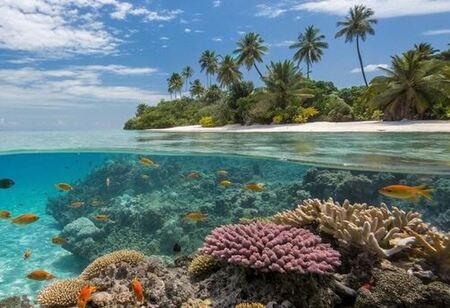
Greece Creates Marine Parks That May Revive Turkey Tensions


In an attempt to preserve marine life, Greece plans to create two national maritime parks, a decision that may cause tensions with Turkey, its neighbor.
West and east of the peninsula, respectively, the parks will be situated in the Ionian Sea and the Southern Cyclades, an island group in the Aegean Sea.
Last year, Turkey objected to the Greek government's promise to establish a marine park in the Aegean Sea. In the past, the two nations have clashed over economic rights and maritime borders in areas of the eastern Mediterranean.
In direct opposition to Greek Prime Minister Kyriakos Mitsotakis' declaration at the UN that Greece would establish marine protection parks within a month, based on the Mediterranean Peace Parks concept put forth at the CIESM international forum, Ankara unveiled its draft "Marine Spatial Plan of the Republic of Türkiye" on June 16.
Also Read: Apple takes a Sustainable Twist this Year with its Wonderlust Event
Long-standing geopolitical tensions between the two countries, particularly over marine boundaries and sovereignty in the Aegean and Eastern Mediterranean, are highlighted by this growing conflict, which has its roots in conflicting maritime spatial planning (MSP) plans. Athens views Turkey's response as a provocative attempt to assert rights over disputed seas, further straining bilateral relations, while Greece presents its effort as a step toward environmental stewardship within the legal framework of the European Union.
Maritime Spatial Planning (MSP), which is governed in the EU by Directive 2014/89/EU, is a tool for planning sea-based activities in a sustainable way, including tourism, energy, conservation, and fishing.
Greece must apply MSP in accordance with international law, particularly the United Nations Convention on the Law of the Sea (UNCLOS), which establishes marine areas such as Exclusive Economic Zones (EEZs), as a member of the EU.
However, Turkey lacks delimitation agreements with Greece and has not ratified UNCLOS, resulting in overlapping claims in the Eastern Mediterranean and Aegean. Publicized by the Turkish Ministry of Environment and the DEHUKAM platform, Ankara's new plan aims to encourage the "sustainable use of marine resources," but it also covers territory that Greece believes to be under its ownership or control.
Greece's marine parks plan is in line with the BBNJ Biodiversity Agreement and EU environmental aims as part of its larger commitment to biodiversity and climate diplomacy. With the goal of preserving marine ecosystems and bolstering Greece's maritime rights under international law, Mitsotakis' declaration expands on Greece's position as a regional leader in ecological governance.
On the other hand, analysts see Turkey's initiative as a geopolitical ploy, despite its environmental objective. Ankara runs the risk of establishing a "fait accompli" that might heighten tensions by claiming disputed areas without acknowledging UNCLOS or established borders, especially if doing so entails limiting navigation or carrying out surveillance in disputed waters. Turning an environmental tool into a political weapon, Turkish authorities have indicated they are "closely monitoring" Greece's plans and may contest any movements in regions they consider contested.
Turkey's rejection of Greece's 12-nautical-mile territorial claims in the Aegean and ongoing disputes over EEZs in the Eastern Mediterranean, which have been made worse by Turkey's 2019 maritime accord with Libya, are only two examples of the dispute's deeper historical rivalry. While Turkey maintains it is defending its rights against Greece's EU-backed demands, Greece accuses Turkey of pursuing "maximalist claims" for domestic political advantage.
Also Read: Is Europe's Battery Production Industry Falling Behind Asia's EV Race?
Greece's adherence to UNCLOS is supported by the international community, especially the EU, whereas Turkey's legal standing is limited due to its exclusion from this framework. Analysts caution that if Turkey's proposal results in measures like naval maneuvers or limitations on shipping from third countries, it might cause a crisis and destabilize the area.